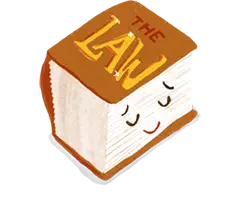Topic
Housing and property
This page contains different parts of laws about Housing and property.

Important laws about Housing and property
Conservation Act 1987
How long you can have a concession for, like a lease or permit, on public land
17Z: Term of concession
Conservation Act 1987
The government keeps a 20-metre strip of land next to water for the country to protect the environment.
24: Marginal strips reserved
Conservation Act 1987
The government can make a special area of land along a river or lake wider to help keep it valuable and accessible.
24AA: Power to increase width of marginal strip
Conservation Act 1987
The government keeps a record of special areas along rivers and lakes, called marginal strips, when land is sold.
24D: Reservation of marginal strips to be recorded
Conservation Act 1987
Crown keeps part of river bed next to former Crown land
24F: Right of Crown to half of bed of river adjoining former land of the Crown
Conservation Act 1987
Looking after land beside rivers, lakes, and coastlines
24H: Management of marginal strips
Conservation Act 1987
A covenant is a promise to protect land for conservation that stays with the land forever.
27: Covenants
Conservation Act 1987
Update land records when its status changes.
50: Changes of status of land to be noted
Conservation Act 1987
Who owns conservation land: getting a record of title
60F: Record of title in respect of conservation areas
Conservation Act 1987
What happens to existing leases and licences when a conservation area is created
64: Existing leases, licences, etc
Conservation Act 1987
Swapping land with the government: a simpler process if you have an agreement
64A: Agreed exchanges to proceed
Limited Partnerships Act 2008
Rules for starting a limited partnership in New Zealand
8: Requirements for limited partnership
More laws about Housing and property
About this project
What is this project?
This project is an experiment to take difficult language, and make it easier to read and understand for everyone.
How do we do this?
What's our process for taking the law and turning it into plain language?
Why is the law written like it is?
Laws are often hard to read. They use a lot of words and language we don't usually use when we talk.
Should we use AI for this?
What are the good and bad sides of using AI?
Is this information the actual law?
We hope that this information will help people understand New Zealand laws. But we think that it's important you talk to someone who understands the law well if you have questions or are worried about something.
You can talk to Community Law or Citizen's Advice Bureau about your rights.
Remember that AI can make mistakes, and just reading the law isn't enough to understand how it could be used in court.
You can talk to Community Law or Citizen's Advice Bureau about your rights.
Remember that AI can make mistakes, and just reading the law isn't enough to understand how it could be used in court.




